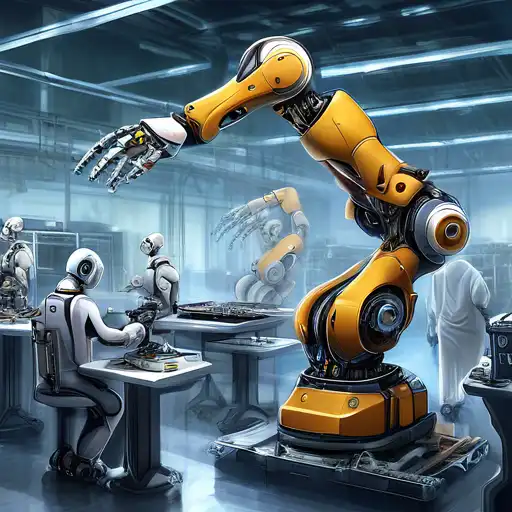The Revolutionary Impact of Robotics on Modern Manufacturing
In the ever-evolving landscape of manufacturing, robotics has emerged as a game-changer, revolutionizing how products are designed, produced, and delivered. This transformative technology is not just enhancing efficiency but also redefining the capabilities of manufacturing floors worldwide.
Enhancing Efficiency and Productivity
One of the most significant benefits of robotics in manufacturing is the remarkable increase in efficiency and productivity. Robots, with their precision and speed, can perform repetitive tasks faster and more accurately than human workers, leading to higher output rates and reduced production times.
Improving Safety in the Workplace
Robotics technology has also made manufacturing environments safer for human workers. By taking over dangerous tasks, such as handling hazardous materials or operating heavy machinery, robots minimize the risk of workplace injuries and accidents.
Reducing Operational Costs
While the initial investment in robotics can be substantial, the long-term savings are undeniable. Robots reduce labor costs, decrease waste through precision, and can operate 24/7 without fatigue, significantly lowering operational expenses over time.
Customization and Flexibility
Modern robotics systems are incredibly flexible, allowing for easy reprogramming to adapt to new products or changes in design. This flexibility enables manufacturers to offer customized products without significant downtime or retooling costs.
The Future of Manufacturing with Robotics
As robotics technology continues to advance, its role in manufacturing is set to grow even further. Innovations such as collaborative robots (cobots) and artificial intelligence (AI) are opening new possibilities for smarter, more adaptive manufacturing processes.
For those interested in the future of manufacturing, exploring the latest trends in automation and AI can provide valuable insights into how these technologies will shape the industry.
In conclusion, robotics is transforming manufacturing in unprecedented ways, offering benefits that include increased efficiency, improved safety, reduced costs, and greater flexibility. As this technology continues to evolve, its impact on the manufacturing sector will undoubtedly deepen, heralding a new era of innovation and productivity.
